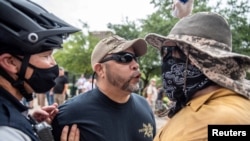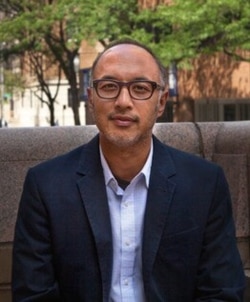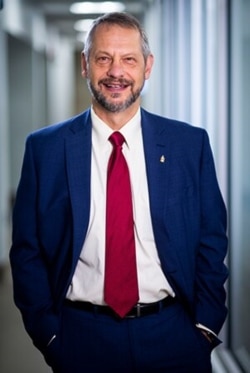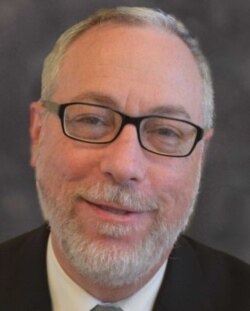The COVID-19 pandemic has been especially challenging for scientists trying to stem a global pandemic while also grappling with people’s doubts about science and questions about the scientists’ motivations.
“It's utterly depressing. It's utterly upsetting, you know. It's disheartening … colleagues or peers, in the larger sense, have been vilified,” says Dr. Barun Mathema, assistant professor of epidemiology at Columbia University in New York. “And we've come into this to help with literally nothing, no payback of any sort.”
Mathema says scientists have pitched in to help battle COVID-19, adding to their already busy schedules, only to come under attack.
“I think what has been sort of the most shocking is that some of the pushback that we've gotten has been sort of on our integrity,” he adds. “Like, there must be an alternative motive behind our findings.”
“I'll just say it's a shame when anything other than objective science drives policy for either side,” says Dr. Aaron Glatt, spokesperson for the Infectious Diseases Society of America (IDSA). “Whether you're red, blue, Democrat, Republican … science should be driving scientific decisions and policies.”
More than 247,000 people in the United States have died from the coronavirus, and there are 11.2 million infections — the highest of any country — according to Johns Hopkins University.
“I was flabbergasted for most of this COVID-19 response, which is science under attack (and) data not being looked at,” says Dr. Boris Lushniak, dean of the School of Public Health at the University of Maryland.
Lushniak is more aware than most of the political component that goes into decisions in the bigger public health realm. He was U.S. deputy surgeon general from November 2010 to September 2015, and was acting surgeon general from July 2013 to December 2014.
“Science needs to be able to bounce back,” he says. “It needs to be taken as a serious partner in terms of decision-making.”
Experts warn that a fall surge in COVID-19 infections is underway. Particularly galling to scientists who are in the battle against COVID-19 are the non-experts.
“You can get personally attacked or you can get publicly attacked, or the credibility of your scientific opinion is attacked by people that don't have an objective status to attack you because they're not qualified experts,” says Glatt, a professor and chief of infectious diseases at Mount Sinai South Nassau in Oceanside, New York.
Part of the problem, as he views it, is that social media amplifies the voices of people who are not qualified to have an opinion on scientific matters.
“It makes me feel bad because I don't have a side on this. I'm not pro or against COVID. I'm not pro or against any treatment,” Glatt says. “I want to assess the treatments and come to a scientific conclusion that they're effective or not. Only people who are experienced and expert are entitled to that opinion.”
Rather than being viewed as a health issue, the wearing of face masks to slow the spread of COVID-19 has become politicized. Some Americans choose not to wear a mask as a political statement — a development that has dumbfounded the scientific community.
“The U.S. would have had a very different response if there were 25 bombers on their way,” Mathema says. “It doesn't matter what political affiliation, you would have all banded together, and that's what was needed. Division is not what you need in a time of war, and a pandemic is very similar to that.”
Mathema says scientists have learned a lesson about messaging and the need to explain scientific concepts in a way that ordinary people can easily understand.
“We all should have taken a course on how to communicate some basic concepts of science and health,” he says. “Communication is something that we certainly did not always get right, and it was not with bad intentions, of course. I think that's one big lesson … that, you know, can cause and, sort of, evoke distrust.”
One of the unintended consequences of the COVID-19 pandemic might be that the public has a better understanding of science and its limitations.
“I hope people believe in science more, that a lot of our decision-making is based on information and data, and that we are willing to change that to say, ‘Hey, my bad,’” Lushniak says. 'We told you initially not to wear masks, and it turns out now I'm going to tell you to wear masks.’ So that I think ... maybe the character and the beauty of science and yet, its limitations, will be better understood by people.”
“Hopefully, we can pick ourselves up from this,” Glatt adds, “and restore science to the position of honor that it always had when I was growing up.”







